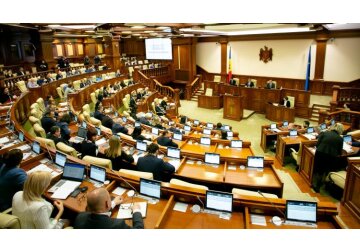
Moldova will improve legislation on public-private partnerships and prohibit the transfer of profitable state-owned enterprises to concessions.
In particular, this is envisaged by the corresponding amendments to some normative acts concerning aspects of public-private partnership (PPP) and state property management, which the Parliament adopted in the first reading. The main provisions of the document are the modernization of the institution of public-private partnership in Moldova, the elimination of legislative gaps in this area, the strengthening of the discipline of public and private partners, the selection of private partners with high financial potential. The document establishes that the maximum term of a public-private partnership agreement cannot exceed 50 years. A private partner, regardless of the form of public-private partnership, must bear at least 50% of commercial risks. At the same time, the object of a public-private partnership cannot be state / municipal enterprises or commercial companies with a state share, from the net profit of which 30% of the investments planned by the PPP agreement can be covered. Ongoing investments will be financed exclusively by the private partner. Another important point concerns the creation of an effective mechanism for monitoring the implementation of PPP projects. According to Deputy Prime Minister, Minister of Economic Development and Digitalization Dumitru Alaiba, it's about eliminating a number of legislative and regulatory gaps related to public-private partnerships, since these shortcomings have led to omissions and abuses in national legislation, as well as errors in its application. According to him, for many years the interests of the state have been damaged due to the conclusion of public-private partnership agreements, such as the Chisinau airport concession agreement and the contract for the modernization of the network of bus stations. Dumitru Alaiba stressed that the changes currently being made to the legislation on public-private partnership exclude the possibility of transferring profitable state-owned enterprises to concessions. They clarify the mechanism for financing public-private partnerships, including provisions stipulating that investments are financed entirely from financial resources provided by a private partner, and investments financed from income related to the management of state assets cannot be recognized as investments from private partner's own funds. Other changes relate to the forms of public-private partnership of the content of the contract, the initiation and transparency of the process of awarding the contract, the content of the feasibility study, monitoring the implementation of relevant projects, etc. As Dumitru Alaiba stressed, the proposed changes are part of Moldova's commitment to development partners, including the commitment to carry out reforms related to the European integration process, as well as part of the government's actions regarding de-oligarchization. The bill will undergo public consultations, after which it must be approved in the second reading.//27.04.2023 — InfoMarket.







